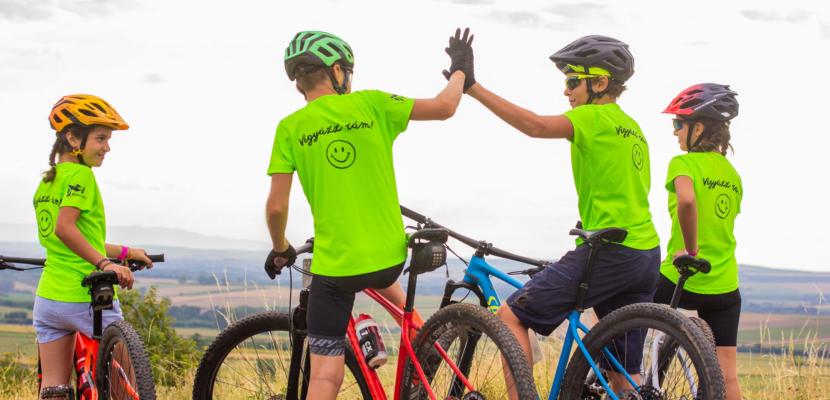
BringásVándor – Explorer Bike Camp: a nation-wide initiative to empower young people

About this good practice
The aim of the initiative is to strengthen community cohesion by providing experience to young people, while shaping their attitudes and self-esteem, developing and educating them about transport culture through the development of bike handling and the improvement of their knowledge of the Highway Code and road safety, contributing to the transition towards using more sustainable modes of transport.
To achieve this goal, week-long cycling camps are organised for young people, where each day the group cycles to a new place. Along the way, participants enjoy a wide range of activities, including visiting castles, archery and swimming. The routes are safe, spectacular and take you to less known but very interesting places in the country.
Accommodation, meals and activities are pre-arranged, bikes, helmets, water bottles, T-shirts and tour guides are provided by the programme. It also welcomes children with disabilities and/or special educational needs. Each group of up to 25 people is led by a person who has previously completed a cycling guide course and is accompanied by two teachers. The State Secretariat for Active Hungary subsidise 75% of the cost of around €410 per participant.
It should be added that it is not only the children who benefit from the programme, but also the region visited, be it through direct income, social benefit for the locals or the development of the cycling-friendly service network.
Resources needed
Depends on the scale of implementation. In Hungary:
- 1,400 bicycles,
- 200 trained tour guides,
- 1 tour guide & 2 teacher per group of up to 25 people,
- Local org. assistance with 0–24 support,
- Costs: €410 / participant (around €120 to be paid by the participant, and €290 support by the State).
Evidence of success
The initiative has been held every year since 2018, with an average of 5,000 participants each year. Almost without exception, the feedback is positive, with over-subscription in many cases. Participants clearly improve their skills, gain experience, make friends and almost "forget" the digital world during their participation. In 2024, 270 groups took part, with 5,690 participants, 4,603 of them children.
Potential for learning or transfer
The initiative can be replicated anywhere, where appropriate infrastructure and staff are available. Not only segregated cycle routes can be considered, low-traffic roads, agricultural and forestry roads can also be used in route planning, but in all cases, safety must be a primary consideration.
The replicability of the initiative is reflected by the fact that since 2022, a route beyond the borders, namely in Transylvania, is also available.
A different aspect, but also a process and approach that can be learned and adopted, is the way in which a primarily civil initiative and its governmental support can be implemented.
Further information
Good practice owner
You can contact the good practice owner below for more detailed information.
